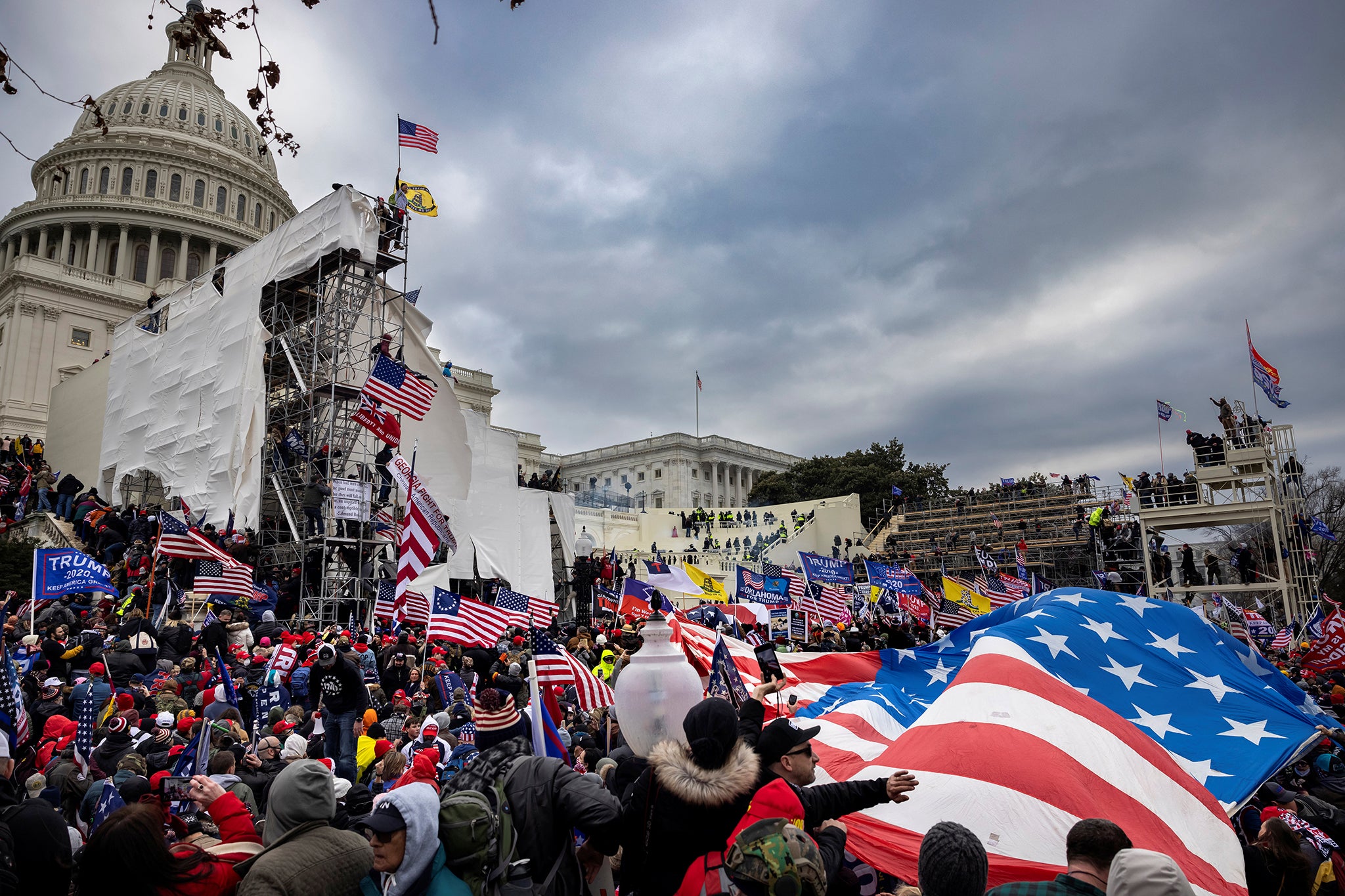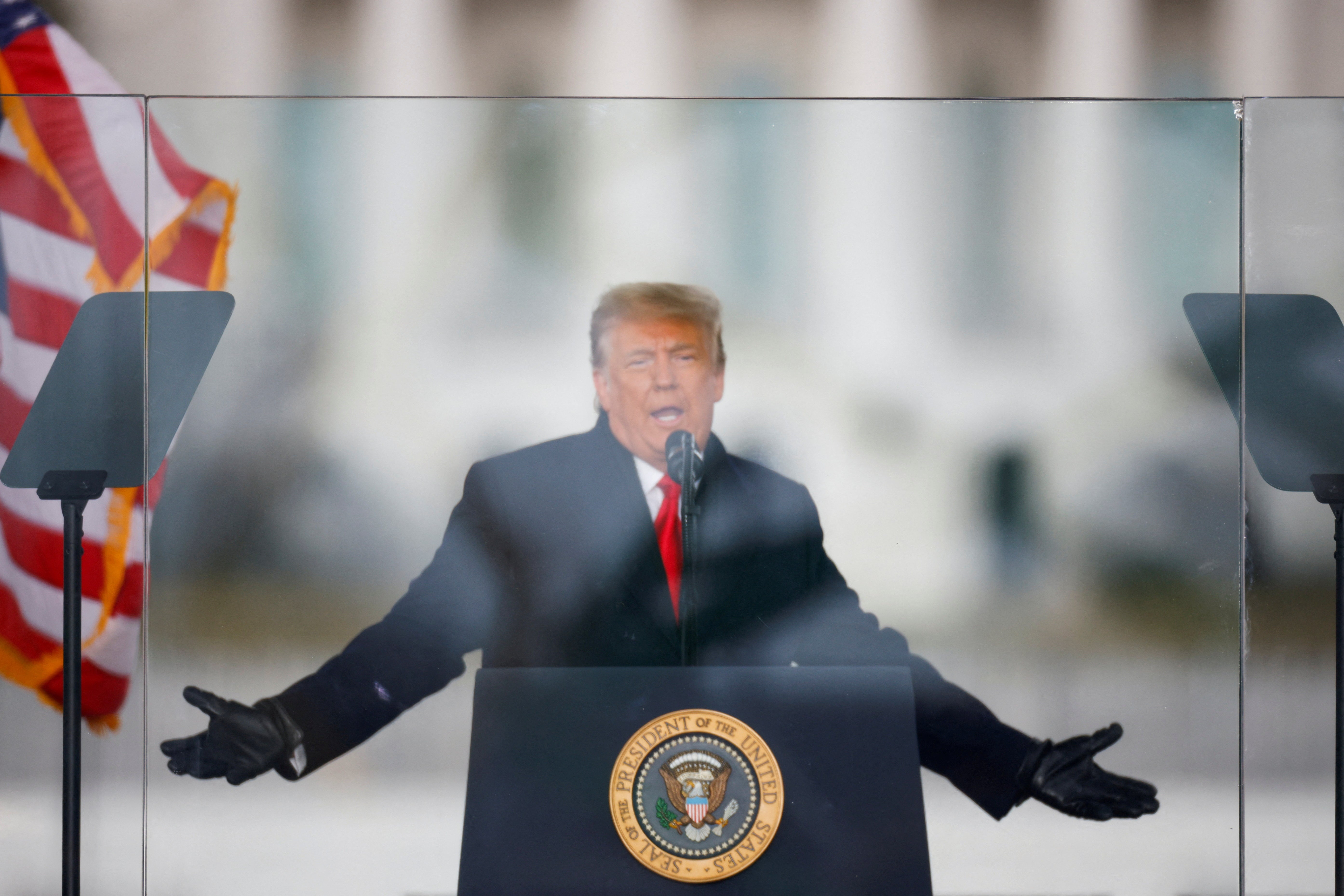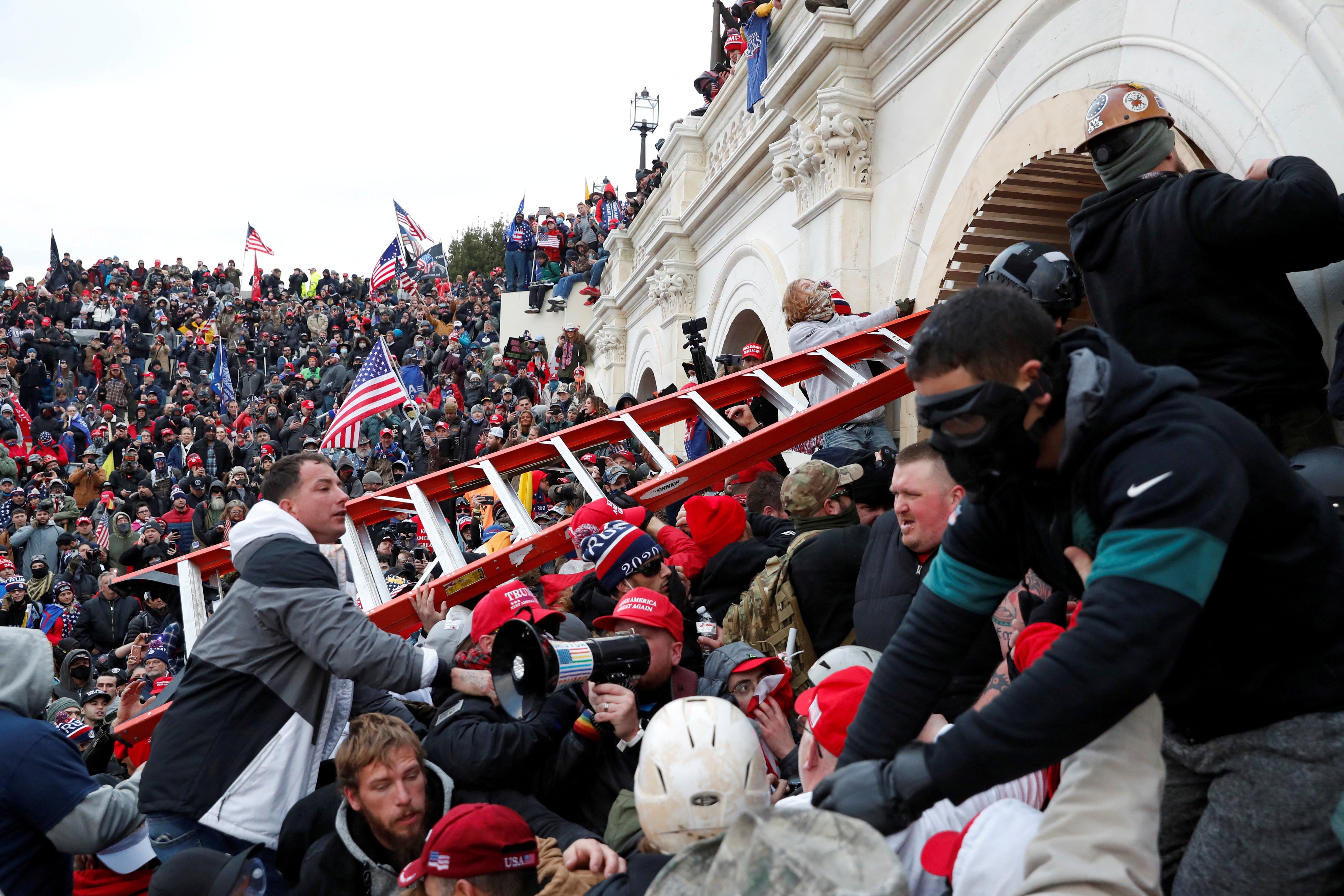‘The decision will not have tremendous significance’: Why SCOTUS’ Jan. 6 ruling will only impact a handful of rioters
The Supreme Court’s ruling will likely not affect most Trump and January 6 defendant’s cases — but some will still have grounds for appeals

Your support helps us to tell the story
From reproductive rights to climate change to Big Tech, The Independent is on the ground when the story is developing. Whether it's investigating the financials of Elon Musk's pro-Trump PAC or producing our latest documentary, 'The A Word', which shines a light on the American women fighting for reproductive rights, we know how important it is to parse out the facts from the messaging.
At such a critical moment in US history, we need reporters on the ground. Your donation allows us to keep sending journalists to speak to both sides of the story.
The Independent is trusted by Americans across the entire political spectrum. And unlike many other quality news outlets, we choose not to lock Americans out of our reporting and analysis with paywalls. We believe quality journalism should be available to everyone, paid for by those who can afford it.
Your support makes all the difference.The Supreme Court’s decision to narrow how Jan. 6 defendants may be charged with “obstruction of an official proceeding” will likely only impact a small number of convicted rioters.
“The decision will not have tremendous significance in the January 6 cases, including that of former president Trump, because in almost all cases there are other charges that have a felony status alongside the obstruction charge,” said William Banks, a professor at Syracuse University College of Law.
Though no defendant was solely charged with obstruction of an official proceeding, there are 27 people who pleaded guilty only to the obstruction charge.
On Friday, the majority of the Supreme Court justices agreed the government needs to establish that a defendant attempted to or “impaired the availability or integrity” of a record, document, object or thing used in an official proceeding to charge someone with obstruction of an official proceeding.
They argued that the criminal charge was intended to be used in white-collar crime cases and, without specificities, could be used broadly just to give prosecutions the ability to seek 20-year maximum sentences.
Among the more than 1,400 rioters charged with various crimes for their participation on Jan. 6, approximately 340 were also charged with the obstruction count in addition to other criminal charges, including Donald Trump.

Within that group, approximately 128 are serving sentences or awaiting trial on charges, including the obstruction count. These people could be resentenced under the obstruction charge but it would not affect sentencing based on other charges.
It is ultimately only 27 defendants who are currently serving sentences solely on the obstruction charge that may see meaningful change to their sentencing due to the court’s ruling — about 2 percent of the total number of people charged.
Trump is unlikely to see significant change in the charges brought by Special Counsel Jack Smith. He previously indicated the former president’s interference with fake electoral vote certificates would still fall under the new interpretation.

Obstruction of an official proceeding is typically used in white-collar crimes, related to witness, victim or informant tampering. It is a provision of the Sarbanes-Oxley Act, which was passed after the 2001 collapse of the Enron corporation.
Federal prosecutors brought the charge against rioters who they believe intended to disrupt Congress’ certification of the 2020 election results that day, in part because it is broad.
But Joseph Fischer, a rioter who faced the obstruction charge, disputed it. The Supreme Court sided with him.
“The basic question before the court was the meaning of a straightforward statute banning obstruction of an official proceeding. Sixteen of 17 federal judges had construed the statute to reach the kind of obstruction at issue in most of the January 6 cases,” Banks said.
“Today, the Supreme Court majority read the statute differently and said that the obstruction statute applied only to documents. Their reading of the statute is contrary to plain meaning of the law. “
In a statement, Attorney General Merrick Garland said he was “disappointed” by the ruling but assured people that the “vast majority of the more than 1,400 defendants charged for their illegal actions on January 6 will not be affected by this decision.”
Join our commenting forum
Join thought-provoking conversations, follow other Independent readers and see their replies
Comments